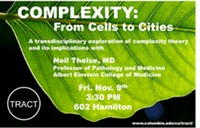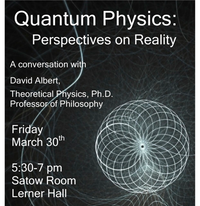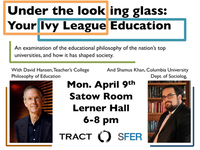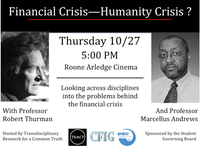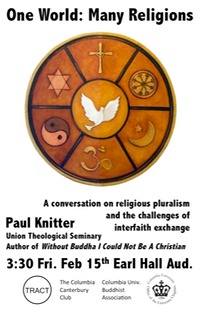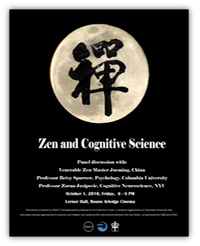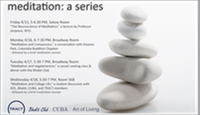Unpacking Science: Changing Worldviews
From Aristotle to Galileo, from Newton to Einstein, our understanding of how the world works has changed dramatically with the growth of scientific knowledge. From the beginning, scientific knowledge has been entwined with philosophical understanding; today, however, technical and theoretical advances in science far outpace the rate at which their philosophical implications are unpacked and integrated into coherent worldviews. Reaching into epistemology, ethics, metaphysics, and religion, advances in science not only change how we see the world but also how we see our place in it.
For example, what do the current advances in neuroscience tell us about the nature of consciousness? How has the development of quantum mechanics changed our understanding of physical reality? What can we learn from the emerging field of dynamical systems theory about what it means to be a living being? Since scientfic knowledge is so thorougly integrated into the way we live, we believe it is important to examine the ramifications of major advances in science so that we can figure out where to start at building a worldview that we can accept, in which we can inhabit.
>>Research sources
Contemporary Social Issues: Critical and Constructive Evaluation
The financial crisis of 2008 marked a critical point in the unfolding history of the 21st century. For TRACT, it has served as an enduring locus of discussion. Reflecting upon the financial crisis forced us to ask many tough questions: Are current economic practices sustainable? What kind of future can we expect with increasing interconnectedness? What are the underlying dynamics driving social problems such as rampant inequality and lingering poverty?
In order to address these questions, we chose to start at understanding the fundamentals of modern economics and the dominant ecnomic theories built upon it. From there, we began to examine the interplay of influence between economic theory and policy decisions at multiple institutional levels over the past few decades, and then to evaluate the effects. Through reflecting upon shared values, drawing insights from outside fields, and projecting current trends into the future, we would arive at critical judgements of the current social-economic-political system and discuss acceptable solutions or alternatives.
Finding Common Ground: Across Cultures and Religions
It could be said that culture and religion are defining features of human civilization. It could also be said we live as individuals permeated with the cultural and the religious. Since civilizations began interacting with each other in antiquity, the diffusion of culture and the encounter of different religions has created inumberable conficts but also syntheses of tremendous influence and endurance. In light of the recent rise of conflicts spurred by religious fundamentalism alongside advances towards tolerance and dialogue such as the Second Vatican Council, no doubt this old historical process continues today at an accelerated rate.
Therefore, we believe that it is extremely important to find the common ground among the major cultures and religions (including atheism and agnosticism) of the world today, respecting differences while finding areas of common exchange. For example, how might Christianity and Buddhism, two radically different religions, one which speaks of a God and the other which doesn't, learn from each other? More broadly, what is the future of religious pluralism? Is it possible to integrate a scientific outlook of the world with a religious outlook? What is the future of secularism and religion? Through open discussion and research, we hope to remove prejudices and encourage mutual understanding.
>>Research sources
Personal Cultivation: Practicing Mindfulness
Not only is it important to achieve an integrated worldview--to see how we belong in the world--but it is also important to achieve an integrated inner view--to feel how we belong to ourselves. In other words, our actions should match our ideals and values. However, because of factors such as stress and anxiety, that is not always the case.
A simple practice that has been shown to reduce stress and anxiety is meditation, a form of which simply consists of developing a sharper awareness of our own thoughts and actions. With that increased awareness we can also better act according to our ideals and values. Since several members of TRACT have had experience with mindfulness meditation, we have made it a project to practice mindfulness ourselves.
